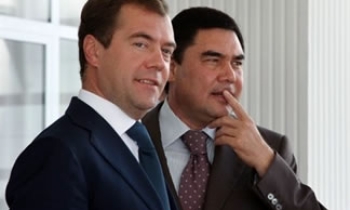German political parties and media regulators are debating whether to introduce restrictions on certain foreign investors in the media sector. The topic is expected to gain prominence after regulators appoint experts in September.
The debate is focussed on whether international financial investors should be blocked from taking stakes above 24.9% in media companies. Financial sponsors might also be forced to reveal who is actually investing in their funds.
While the regulatory bodies for electronic media prepare recommendations on these questions, the major political parties in Germany are also in the process of developing their own positions. Industry sources are watching carefully in case the debate reintroduces protection and impedes the free flow of capital.
The topic arose after German major TV group ProSiebenSat.1 Media, which was only recently taken over by private equity investors KKR and Permira, announced job cuts, mainly in its news production units. Critics of the deal have said that media companies are more important than simply maximising returns.
According to German constitutional law, all legislation regarding media is within the responsibility of Germany’s 16 federal states, which co-ordinate their legislation in the regularly renewed “Rundfunkstaatsvertrag” (RStV), a contract to harmonize media legislation among the federal states.
Currently, the 10th RStV is being prepared. It is unlikely that a 25% clause could be introduced at this stage, but it could appear in the 11th edition with enough political support.
First drafts for the 11th RStV, which could see implementation in the first half of 2009, are already being prepared, according to Marc Eumann, head of the media commission of the social democratic party, SPD.
The 10th RStV should be signed by the prime ministers of the federal states before the end of the year. The contract needs approval of each parliament of the sixteen federal states before coming into force, a process that won’t be completed before Spring 2008, according to Eumann.
The chancellery of the federal state of Rhineland-Palatinate, which co-ordinates the process among the federal states, said it did not expect the 10th RStV to be introduced before mid-2008.
The political parties are meanwhile developing their point of view on the matter. While the SPD media commission has not yet formulated a clear position, its head Marc Eumann supports a 25% restriction. Eumann also told this news service that Kurt Beck, chairman of the SPD, was in support of the restrictive approach.
Three members of the SPD media commission are currently preparing a draft for the SPD federal party convention in October, which, if approved by the convention, would become the formal position of the Social Democrats. The team includes Eumann himself, Joerg Tauss, spokesperson for media politics for the SPD, and Klaus Benneter. Tauss stressed when talking to this news service that he personally was not in favour of a 25% restriction. “It’s a provincial approach,” he said, although adding that he agreed that the pressure investors could put on media companies needed to be restricted. “Eumann favours a more restrictive approach than I do, but there is no argument – we have not come to a final conclusion yet,” Tauss said.
Benneter was not available for comment.
From inside the conservative party, the CDU, a generally more cautious approach seems to prevail for the time being, although the need for some type of regulation appears to be generally accepted. Bernhard Vogel, former prime minister of the federal state of Thuringia and one of the leading supporters of the introduction of commercial TV in Germany in 1984, recently underlined in an interview that media was not just businesses, but first of all part of the culture. This priority was at risk, he noted, adding that a modification of the RStV might be necessary to ensure that financial returns would not have a higher priority than the media’s cultural contribution.
Peter Mueller, conservative prime minister of the federal state of Saarland, in a recent article in a German paper, asked if Germany was sufficiently prepared to fight off the risk of German media or telecom companies being taken over by investors funded by Chinese or Russian currency reserves. He added that under current legislation, a sale of ProSieben to a foreign state-owned or parastatal investor could not have been restricted or barred. Mueller mentioned a potential investment of Russian Gazprom in the German media sector, adding that the company was trying to influence domestic politics in Russia. Gazprom did not reply to repeated requests for participation in this article.
Mueller said a European Union-wide capping of investments by international investors in media companies might be a solution.
A leading German M&A banker said the debate extends beyond media to any strategic sector where buyers include foreign state-controlled funds.
“There are funds from China and the Middle East where the ultimate decision making power is with a state entity. I am sympathetic to the introduction of controls where you have a significant pool of capital with intentions beyond just financial returns,” he said. The banker noted that there are restrictions in the defence sector and there are now “strong voices” in the German government to extend this to others such as telecoms and energy. “But you have to be careful not to reintroduce protection and impede the free flow of capital,” he said.









